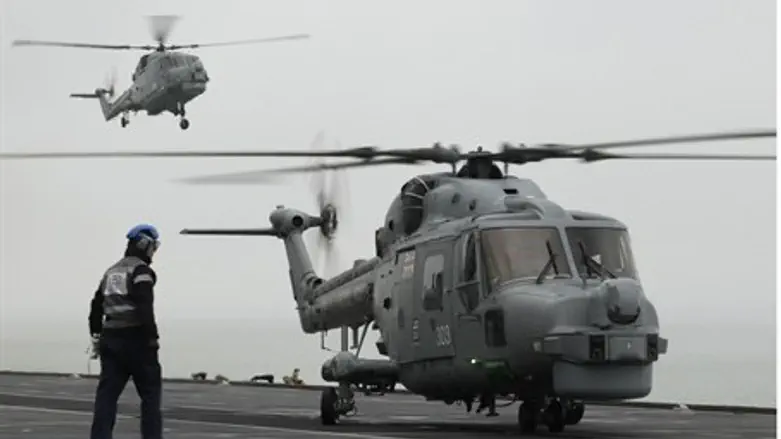
European Union helicopter gunships destroyed several pirate skiffs on the Somali coast in their first-ever on-shore operation.
The EU naval forces targeted pirate boats lined up along the shoreline near the town of Haradhere in Somalia's Galmudug region, a major center of pirate activity.
Lieutenant Commander Jacqueline Sherriff, spokesperson for the EU Naval Force, told Voice of America the operation took place around midnight Tuesday.
“The operation was carried out using an EU Naval Force helicopter," she explained. "At no point did boots go on the ground, and EU forces did not go on the ground."
"Basically what the guys in the helicopter were able to do was focus in on these attack skiffs and fire at them and make them inoperable," she added, noting the operation "was over in minutes."
The operation represents a change in tactics for the EU Naval Force, which was launched in 2008 to protect ships at sea around the Horn of Africa.
The EU expanded its mandate in March of this year to allow operations targeting pirate supplies along the shore.
“Before we could only operate at sea, which was quite frustrating actually, because there were the pirates on the beach and they knew we couldn't touch them if they were feet dry,” Sheriff noted.
Earlier this year, US special forces set another first in the Wests war against Somalia's pirates when they staged a deadly raid to rescue Westerner's held hostage in Somalia.
However, unlike the EU operation, the US raid did not herald a change in doctrine and was only undertaken due to reports that one of the hostages health was deteriorating.
Somali pirates have made hundreds of millions of dollars in recent years hijacking ships and holding the vessels and their crews for ransom.
However, the number of successful hijackings has dropped sharply in the past several months, as ships take greater precautions, and naval forces take more aggressive action against the pirates.
Nonetheless, the pirate gangs dominate Somalia's coastal towns, while the south of the country remains in the grip of the al-Shabaab terror militias. Al-Shabaab has clashed repeatedly with African peacekeepers from Kenya and Ethiopia.
Somalia's Transitional Federal Government - which was aware of the EU change in doctrine, but not Tuesday's operation - said it welcomed the EU's efforts, but "remains concerned about the risk to civilians."
“While we appreciate this, we also recognize that the root cause of piracy lies inland," TFG spokesperson Abdurahman Omar Osman told AFP "The Transitional Federal Government would prefer more resources be put into the coastal communities themselves."
"Whether it is for employment or youth opportunities... so that will help in the long-term," he said.
Western nations, who have bankrolled the TGF – which has little power outside the capital of Mogadishu – have expressed sharp criticism of the poor progress the body has made, despite continued support.
"The transitional federal government was always meant to be just that —transitional," US Secretary of State Hillary Clinton said in February. "It is past time for that transition to occur, and for Somalia to have a stable government."